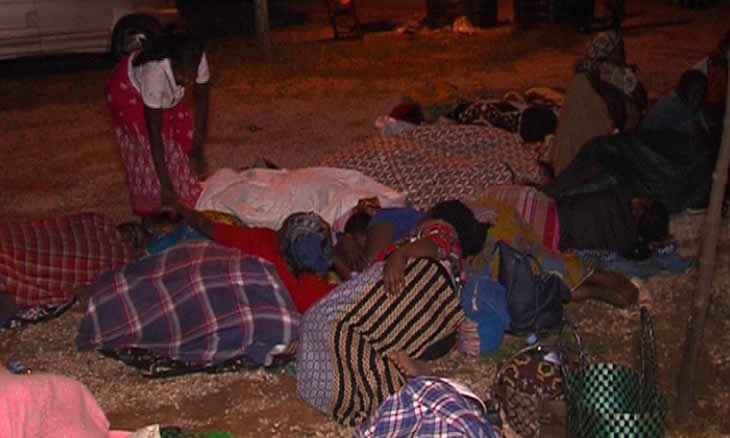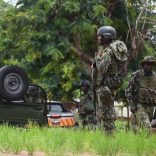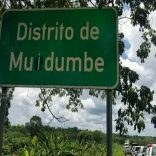Mozambique: Over 11,000 displaced after terrorist incursion in Chiúre -AIM reprot
Hulene: Displaced families plunged into a sea of uncertainties – Watch

O País
More than one hundred families who were victims of the Hulene tragedy have been resettled in the Ferroviário neighbourhood on the outskirts of Maputo. They are complaining about the lack of space on the site and asking for more support from the authorities.
Despair and uncertainty are the feelings most often expressed by those who lost almost everything in the Hulene rubbish dump collapse. “O País” followed the first night of the families accommodated in the Bairro Ferroviário’s ‘Círculo’ closely, and the scenario was one of total discouragement.
Our reporter found a young woman who saw Hulene’s trash claim six of her family members. Now, without a roof or even the familiar affection, she has to gather strength to care for her youngest son. Without strength: “I do not feel well,” were the only words she could muster. We may well understand her; her anguish was visible in her every gesture.
In the same improvised shelter, we found Carmila Mathe lying next to her daughter. Both were injured, but the biggest hurt was not in her bruises. They felt a greater pain, the pain of the absence of a relative gone forever. “Everything happened to us inside the house – I do not remember much. I only know that I lost my son. I do not know what our life will be like, because we have lost everything,” Carmila said, with tears in her eyes.
The families are many, some lying on the floor while waiting for the tents to be assembled. Existing infrastructures on the spot had been improvised to accommodate people. The families whose homes are submerged under the rubbish are demanding more from the authorities: even on their first night, some of them waited hours without food or blankets. On Monday night at the site, our team saw Mozambique Electricity (EDM) and the National Institute of Disaster Management (INGC) carrying out work, but at about 10.30 p.m., some families were still lying on the ground.
And how was the first night?
“Terrible,” is how Rosita Horacio, one of the victims of the tragedy, described her first night here, a feeling shared by the majority. And why? Our reporter returned to the scene yesterday morning and heard reports of discomfort and poor conditions. With rain falling at dawn, the victims had to fight for space in tiny shelters with water leaking through the ceiling.
“It was terrible spending the night here. Some had blankets; some, like me, did not. We’re packed tight in here, this is no way to live. Now, as I talk to you, (between 9:00 and 10:00 a.m. on Tuesday) we have not had breakfast yet,” Rosita explained, backed up by the elderly Lurdes Cossa. “I’m desperate. I have nothing, I’m helpless. I’ve lost a son and my husband is no longer with us. The house he left us was destroyed by the landslide. I do not know what the next days will bring us, we can only pray to God to give us strength to face this tragedy,” said Lurdes.
Health authorities fear spread of disease
What is certain is that the number of families needing support will rise. The latest figures indicate that there were 103 families at the new site, compared to 72 on the first day.
Health authorities fear the spread of disease. Ilda Nhaca, the doctor in charge, said: “We have detected 17 people with complaints such as diarrhea, abrasions and headaches. This is the rainy season, and we are making every effort to ensure there is no cholera outbreak. Families are in small accommodation, and this can be a danger. And, because there many who have suffered trauma, we are offering psychological support for them to cope with the situation.”
The victims are demanding the authorities offer a concrete resettlement plan, so that they do not return have to the danger zone. The rain continues to fall, and the families fear the worst.
By Raúl Massingue













Leave a Reply
Be the First to Comment!
You must be logged in to post a comment.
You must be logged in to post a comment.